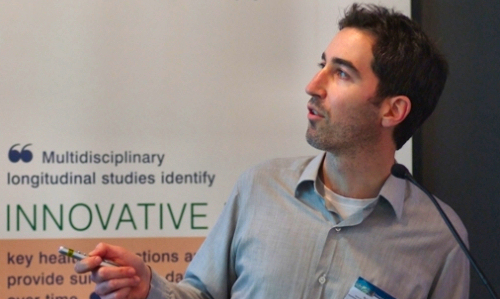Improved diagnosis and management of one of the most common cancers in men – prostate cancer – could result from research at the University of Adelaide, which has discovered that seminal fluid (semen) contains biomarkers for the disease.
Results of a study now published in the journal Endocrine-Related Cancer have shown that the presence of certain molecules in seminal fluid indicates not only whether a man has prostate cancer, but also the severity of the cancer.
Speaking in the lead-up to Men’s Health Week (9-15 June), University of Adelaide research fellow and lead author Dr Luke Selth says the commonly used PSA (prostate specific antigen) test is by itself not ideal to test for the cancer.
“While the PSA test is very sensitive, it is not highly specific for prostate cancer,” Dr Selth says. “This results in many unnecessary biopsies of non-malignant disease. More problematically, PSA testing has resulted in substantial over-diagnosis and over-treatment of slow growing, non-lethal prostate cancers that could have been safely left alone.
“Biomarkers that can accurately detect prostate cancer at an early stage and identify aggressive tumors are urgently needed to improve patient care. Identification of such biomarkers is a major focus of our research,” he says.
Dr Selth, a Young Investigator of the Prostate Cancer Foundation (USA), is a member of the Freemasons Foundation Centre for Men’s Health at the University of Adelaide and is based in the University’s Dame Roma Mitchell Cancer Research Laboratories.
Using samples from 60 men, Dr Selth and colleagues discovered a number of small ribonucleic acid (RNA) molecules called microRNAs in seminal fluid that are known to be increased in prostate tumors. The study showed that some of these microRNAs were surprisingly accurate in detecting cancer.
“The presence of these microRNAs enabled us to more accurately discriminate between patients who had cancer and those who didn’t, compared with a standard PSA test,” Dr Selth says. “We also found that the one specific microRNA, miR-200b, could distinguish between men with low grade and higher grade tumors. This is important because, as a potential prognostic tool, it will help to indicate the urgency and type of treatment required.”
Story Source:
The above story is based on materials provided by University of Adelaide.





